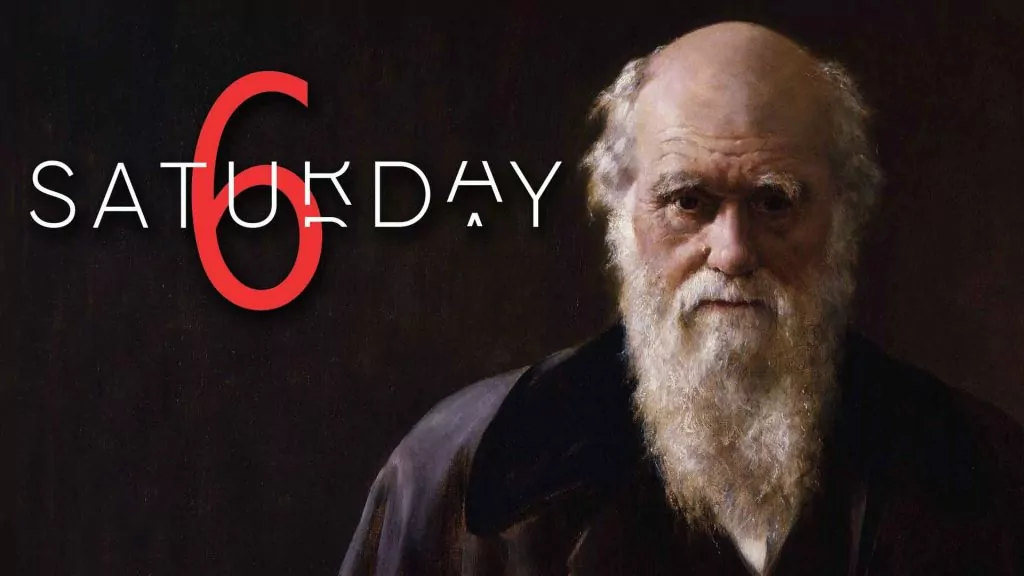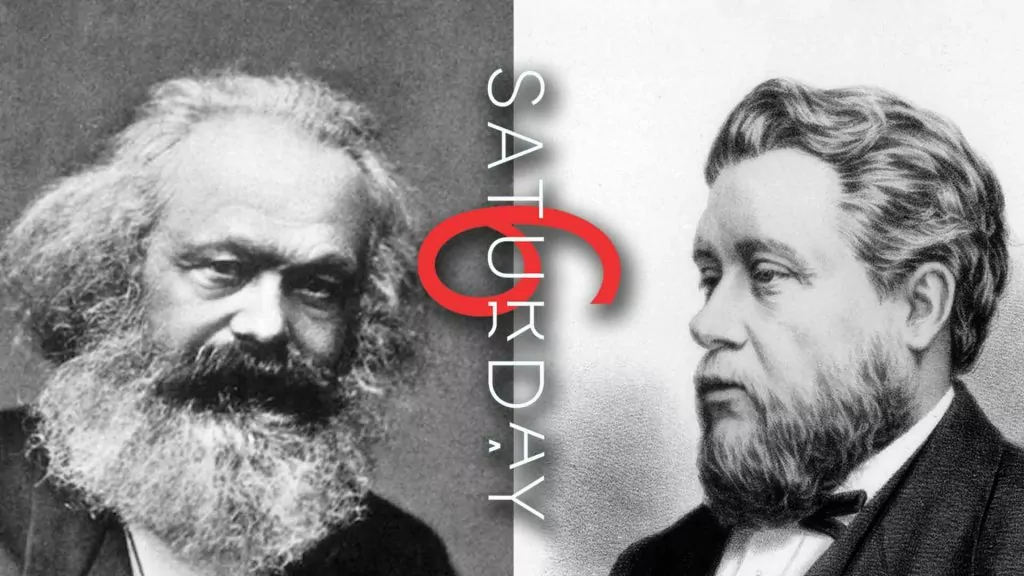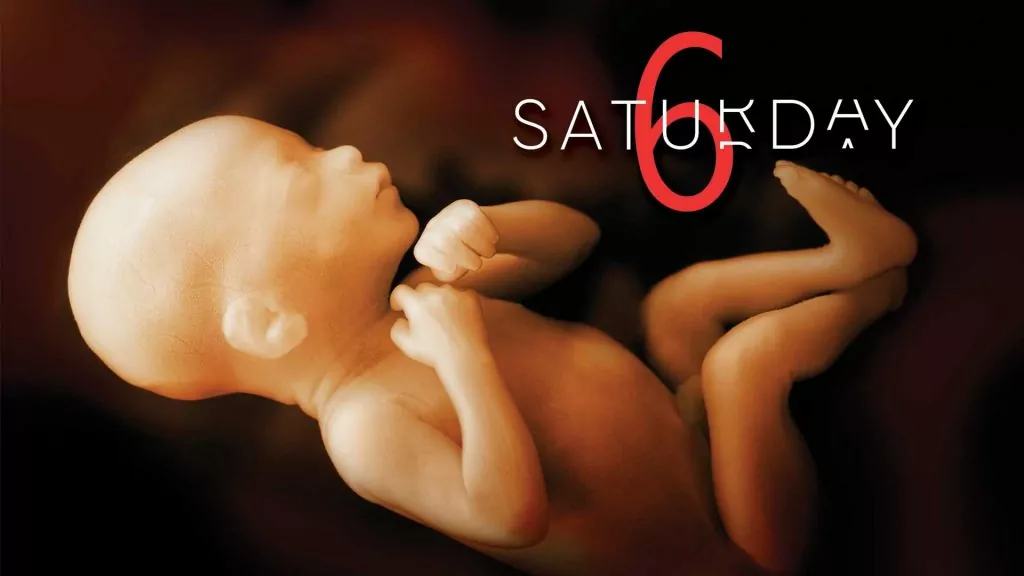More birds than believers in church
This past Sunday I had the privilege of leading worship in my home congregation just outside of Hamilton, Ontario. I arrived about ten minutes before the service began. Everyone was already in church … all three of them! One elder, one brother taking care of sound and video, and one sister playing the piano. No more fellow believers joined us in the church building, although with a congregation of some 450 members, many were joining us from their homes via a livestream connection.
Alas, we have been living with this reality for about ten Sundays in a row here in Ontario. It is much the same in many other – but not all – places. To curb the spread of COVID-19, governments around the world have restricted large public gatherings. In Ontario (at the time of writing), no more than five are permitted to gather publicly. That is why there were only four of us in church.
But what about the birds? As I entered the building, one brother cheerfully quipped, “You have competition this morning. The birds are back.”
You see, at present our congregation worships in a gymnasium. Resourceful feathered creatures somehow discovered a little gap somewhere up there in the roof. Are you also thinking of Psalm 84 in the Book of Praise?
The sparrow finds a home to rest
The swallow builds herself a nest
By the volume of sound coming from that avian choir in the rafters, I would hazard an uneducated guess that there were more birds than believers in church this past Sunday.
In Article 27 of the Belgic Confession, we affirm that the church is “a holy congregation and assembly of the true Christian believers.” When more birds than believers have assembled in a church building on Sunday, we have reason to grieve.
Caught between commands?
At least three divine commandments intersect in this circumstance.
4th Commandment
As part of the fourth commandment, we confess that we must “diligently attend the church of God to hear God’s Word, to use the sacraments, to call publicly upon the Lord, and to give Christian offerings to the poor” (Heidelberg Catechism, Lord’s Day 38). So long as you have a good Internet connection and your local congregation has livestreaming equipment, you can still see the preacher and hear the preaching quite well. Similarly, the minister can still lead us in public prayer, and by sending an e-transfer we can still give Christian alms. All of this is not nothing.
But so much is missing as well. In places where the restrictions are more severe, it is well nigh impossible to administer the sacraments. We sing psalms and hymns in our homes, but it does not even come close to the uplifting experience of singing together with hundreds of fellow believers in a building that is acoustically alive.
In short, did we “attend the church of God”? Well, sort of but not really. Psalm 122 rings in our ears and weighs down our hearts: “I was glad when they said to me, let us go to the house of the Lord,” not stay in our own houses.
5th Commandment
At the same time, in the fifth commandment, the Lord requires us to respect and obey our governing officials. Consider the words of Romans 13:1-2
“Let every person be subject to the governing authorities…. Therefore whoever resists the authorities resists what God has appointed, and those who resist will incur judgment.”
Those words are both blunt and inspired.
This command still applies when governing authorities are unjust or unwise. The apostle Peter wrote, “Be subject to your masters with all respect, not only to the good and gentle but also to the unjust” (1 Pet 2:18). But there is a limit to this, as well, for the same apostle said to the Sanhedrin, “We must obey God rather than man” (Acts 5:29). Do we have to break the fifth commandment and contravene the restrictions on public gatherings in order to keep the fourth commandment and assemble in church to worship God?
6th Commandment
Answering that question is already complex, but now add the sixth commandment. This command not only prohibits murder but also calls us to “protect from harm as much as we can” (Heidelberg Catechism, Lord’s Day 40).
What now? If we fulfill the fourth commandment and attend the church of God, do we (potentially) break the sixth commandment by putting fellow believers, and by extension others with whom they may have contact, in harm’s way?
We feel caught between the commands. Our consciences are hung up on the horns of a three-way dilemma. What is a sincere Christian to do?
Some historical perspective
As the Preacher teaches us, nothing is new under the sun (Eccl 1:10). Serious pandemics have afflicted the world before. For the sake of public health, governments have shut down church buildings before.
For example, between 1576 and 1578, during the plague of Milan, fifteen percent of that city’s population died. At the peak of the infection curve, the city closed all “non-essential shops” and put into effect a “general quarantine,” which also meant that public worship services were not permitted.1 Sound familiar?
The archbishop, a certain Carlo Borromeo, co-operated with local officials and organized the publication of booklets containing penitential Bible passages, prayers, and songs. These were then distributed, free of charge, to the citizens. At set times, when the church bell rang, everyone was to come to the doors and windows of their homes. Together the city recited prayers and sang songs. The cobbled streets of Milan, rather than the marbled nave of its cathedral, resounded with congregational singing. Can you imagine?
Similarly, in the fall of 1918 the so-called Spanish flu ravaged Philadelphia. On October 3, the city officials closed all schools. On October 4, they closed all saloons, theaters, and churches as well. For the balance of the month, everyone lived through a complete lockdown, other than doing what was necessary to feed their families and care for the sick, the dying, and the dead.
By the end of the month, though, the infection rate subsided and things opened up again. As a sure sign of a different era, “the first step in removing the ban allowed churches and synagogues to open,” although, at least in the case of the churches, “…without Sunday school.”2
History is interesting and instructive. We are certainly not the first generation to live through times like these. Still, history is not authoritative. The question remains: in the sight of our God, what are sincere Christians to do?
Do not subdivide the commands
Difficult circumstances can either push us apart or pull us together. Let us earnestly pray that it would be the latter. It is hard, though, to keep our minds simultaneously focussed on all the commands involved.
One believer quickly zeroes in on the fourth commandment: God calls us to assemble for worship, therefore, we must assemble for worship.
The heart of the next child of God, though, is gripped by the truth of the fifth commandment. God warns that if we resist the authorities he has put in place, we will incur judgment. Surely we need to take that seriously, don’t we?
Then, yet another brother or sister in the Lord feels the burden of the sixth commandment, being concerned that he or she might seriously endanger someone else’s health. Asymptomatic transmission is a reality, after all.
Different people emphasize different commands, and if they do it too aggressively, they may inadvertently push us apart from each other. We will need to have patience with each other and be mindful of each other’s consciences.
Beyond that, though, be assured that there is no three-way dilemma in the Word of our God. Just as surely as Scripture cannot be broken (John 10:35), it cannot be sub-divided either. The whole law is fulfilled in one key word: love (Matt. 22:37-40; Gal. 5:14; Lord’s Day 2). Intertwined love for God and our neighbour will provide the unifying departure point for us all.
Walk forward in love
“I love the Lord” (Ps 116) and “I love your saints” (Ps 16) are the twin-engines of holy desire that propel us out of bed, into our cars, and on toward our church buildings twice a Sunday. Right? But that plush recliner in my family room is more comfortable than the oak pew in church, isn’t it? And an extra hour of sleep on Sunday morning is rather nice, too, isn’t it?
The Lord can, and will, use the COVID-19 pandemic to refine our love-filled loyalty to him and burn away all dross of custom, superstition, or hypocrisy in our obedience of the fourth commandment. If our souls are yearning to be back in the courts of our God with our fellow believers (Ps 63), then our God is fulfilling his promise to take evil and turn it to our benefit.
Next, holding the fourth and sixth commandments together is already familiar territory for us. I long to attend the church of God, but if I’m seriously sick with an infectious disease I’ll have to stay home or take other significant precautions so that I don’t harm others. In such a case I am not breaking the fourth commandment in order to keep the sixth. Why not? Because in God’s law love for him and love for the neighbour do not compete; instead, they complement.
For example, in the OT when some of his own people had serious diseases, God himself quarantined them “outside the camp,” thereby also keeping them away from public worship (Lev. 13, 14). To be sure, these laws were more than a public health matter. They also involved other, deeper, spiritual lessons. But as a loving Father, our God also ensured that public worship gatherings would not become seedbeds for the spread of serious sickness. Under certain circumstances, then, loving both God and our neighbour means we may need to stay away from public worship.
These biblical principles also apply as we deal with COVID-19. On the one hand, excessive fear of viruses should not stop us from assembling for worship. The Holy Spirit teaches us that the wise man will not be immobilized by unwarranted fear of lions on the road or, by extension, of viruses in the pews (Prov. 26:13). On the other hand, love for the neighbour and for our heavenly Father who upholds our neighbour’s health will compel us to exercise all due caution. In short, love and wisdom pave a path that holds the fourth and sixth commandments in harmony.
Fulfilling the fifth commandment in these present circumstances is more challenging but not impossible. In the final words of his Institutes, John Calvin reminds us that government officials may well have to correct some of their fellow officials when they act unjustly or unwisely (Institutes 4.20.31). Faced with the double affliction of both plague and persecution, Theodore Beza, Calvin’s successor, also recommended working through the “lower magistrates” in order to redirect “higher magistrates,” who may fail to uphold what is right and wise in the eyes of God.
This approach fits well with Romans 13. In verses 1–2, we read how the Lord instituted “governing authorities,” not authority. The plural noun is significant. Not one single person in authority embodies all the wisdom required to rule, especially in challenging circumstances like COVID-19. If some governing officials are acting unwisely or unfairly toward the church, even if their intentions are noble, then believers can work with and through other officials in order to promote the necessary corrective re-balancing. In this way, we honour all the authorities in their God-given calling and in doing so, honour God himself. Again, love for the neighbour and love for God cohere rather than conflict.
Thankfully, in some areas, we even have members of our Reformed congregation serving as government officials in town councils, provincial, and federal parliaments. Without denying the value of other efforts and initiatives, let us earnestly support and spur on these fellow believers, as well as any other elected representatives who will lend a sympathetic ear. The goal will be that, under the Lord’s blessing, as soon as it is safe to increase the size of public gatherings, the church will be the first in line to benefit, not the last. This approach also holds together the fourth and fifth and sixth commandments.
May our God swiftly bring the day when the believers again far outnumber the birds in church. And may our chorus of congregational praise soon drown out their beautiful little chirps with a mighty sound that shakes the ground (Psalm 150, Book of Praise)!
Endnotes
1) Chiu, Remi. “Singing on the Street and in the Home in Times of Pestilence: Lessons from the 1576–78 Plague of Milan,” in Domestic Devotions in Early Modern Italy, ed. Corry, Maya (Leiden: Brill, 2018), 28.
2) Stetler, Christina M. “The 1918 Spanish Influenza: Three Months of Horror in Philadelphia.” Pennsylvania History 84, no. 4 (2017): 477.
Dr. Jason Van Vliet is Principal and Professor of Dogmatics at the Canadian Reformed Theological Seminary in Hamilton, Ontario. This article first appeared in Clarion and is reprinted here with permission.
...































